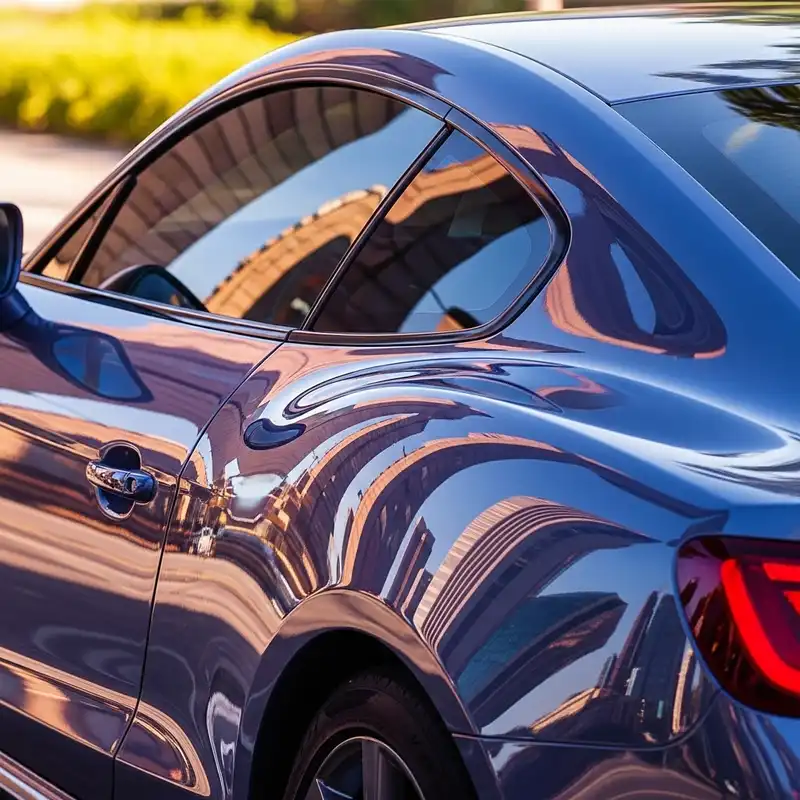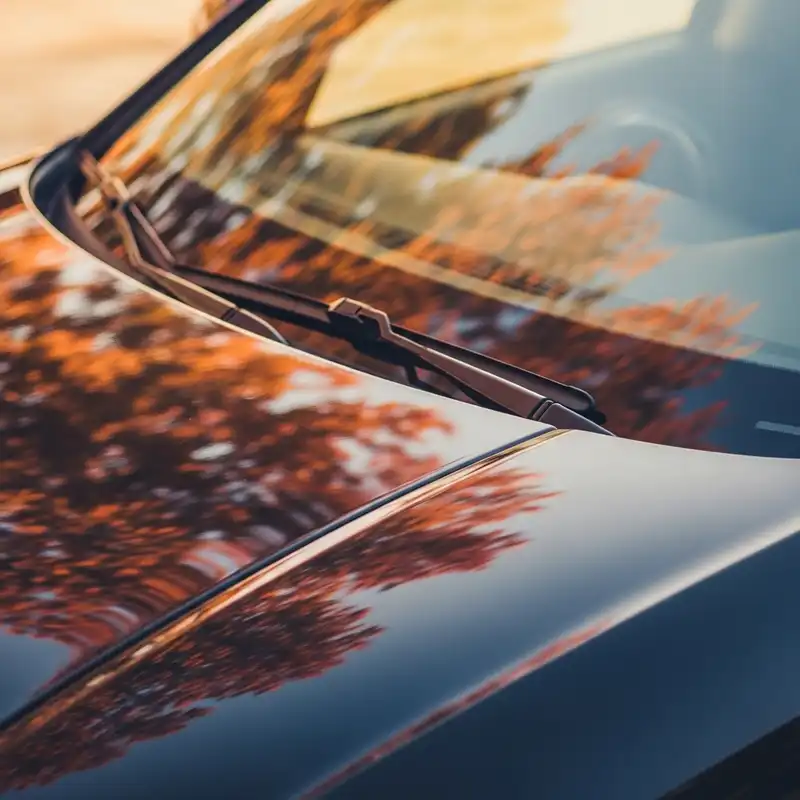TL;DR
As an FCA-authorised expert broker that has arranged over 900,000 policies, WeCovr has seen firsthand the devastating impact of incorrect motor insurance in the UK. This guide is essential for any business owner or employee who drives for work. We’ll expose the critical mistakes that could cost you everything.
Key takeaways
- Social, Domestic & Pleasure (SD&P): This is the most basic level of cover. It protects you for day-to-day personal driving.
- Visiting friends and family
- Going shopping
- Driving on holiday within the UK
- Leisurely drives
As an FCA-authorised expert broker that has arranged over 900,000 policies, WeCovr has seen firsthand the devastating impact of incorrect motor insurance in the UK. This guide is essential for any business owner or employee who drives for work. We’ll expose the critical mistakes that could cost you everything.
Business Vehicle Insurance
It’s a scenario played out on Britain's roads every single day. A florist driving to deliver a wedding bouquet, a consultant heading to a client meeting, or a builder picking up supplies from a merchant. They have car insurance. They pay their premium on time. They believe they are protected.
They are dangerously wrong.
For hundreds of thousands of UK business drivers, the personal car insurance policy they rely on is not just inadequate—it's a ticking time bomb. A single accident, a routine police stop, or a simple claim could trigger a catastrophic chain reaction, leading to a voided policy, personal liability for tens of thousands of pounds in damages, and even criminal prosecution.
This isn't scaremongering; it's the harsh reality of motor insurance law. The line between personal and business use is razor-thin, and crossing it without the right cover is a gamble you and your business cannot afford to lose.
The Personal Policy Trap: Why 'Social, Domestic & Pleasure' is Not a Safety Net
Every standard car insurance policy starts with a defined 'Class of Use'. Understanding this is the first and most critical step in ensuring you're legally and financially protected. Insurers are meticulous about this because the risk profile changes dramatically with each class.
What Does Standard Personal Car Insurance Actually Cover?
-
Social, Domestic & Pleasure (SD&P): This is the most basic level of cover. It protects you for day-to-day personal driving.
- Visiting friends and family
- Going shopping
- Driving on holiday within the UK
- Leisurely drives
-
SD&P + Commuting: This is an extension of SD&P. It covers everything above, plus the journey to and from a single, permanent place of work. If you work at the same office or site every day, this is the cover you need for that journey.
Crucially, neither of these standard options covers you for driving that is an intrinsic part of your job, beyond simply getting to your desk.
The Definition of 'Business Use' That Catches Everyone Out
Insurers define 'business use' as any driving related to your work other than commuting to a single, fixed location. Even one trip could invalidate your personal policy.
Examples of Business Use:
- A salesperson visiting multiple client sites.
- An estate agent driving prospective buyers to view properties.
- A mobile hairdresser travelling to customers' homes.
- An IT contractor moving between different company offices.
- A manager driving to a different branch for a meeting.
- Even running a simple work-related errand, like going to the post office to send a business parcel or picking up sandwiches for a team meeting.
The moment your journey's purpose is to generate income or further your business's objectives, you have crossed into business use.
| Class of Use | What It Covers | Who It's For | Common Pitfall |
|---|---|---|---|
| Social, Domestic & Pleasure (SD&P) | Non-work-related driving like shopping, visiting family. | Retirees, stay-at-home parents, individuals who do not drive for work. | Using the car for a work errand, even once. |
| SD&P + Commuting | All of the above, plus driving to and from one permanent workplace. | The majority of UK office workers and employees with a fixed base. | Driving to a temporary site or another branch office for a meeting. |
| Business Use (Class 1, 2, 3) | All of the above, plus driving for work-related purposes. | Salespeople, mobile workers, business owners, anyone who drives as part of their job. | Assuming 'commuting' covers all work-related travel. |
According to the Financial Conduct Authority (FCA), non-disclosure of material facts—like using your car for business—is a primary reason for claims being rejected. Your class of use is a very material fact.
The Catastrophic Consequences of Inadequate Cover
The assumption that "it'll be alright" or "my insurer will never know" is a fool's game. The financial and legal ramifications are severe and can destroy not only your personal finances but your entire business.
1. The Voided Claim: Your Insurance is Worthless
Imagine this real-world scenario: A self-employed plumber has a minor accident on his way to an emergency call-out. He has a standard 'SD&P + Commuting' policy. When he files a claim, the insurer asks for details of the journey. He honestly states he was on his way to a customer's address. The insurer immediately declares the policy void ab initio (void from the beginning) because he was using the vehicle for business purposes, a risk they had not agreed to cover.
The consequences are immediate and devastating:
- The insurer will not pay for damage to his van. He must cover the repair costs himself.
- The insurer will not pay for the third party's damages. The plumber is now personally liable for the other driver's vehicle repairs, medical bills, and any loss of earnings. The Association of British Insurers (ABI) notes the average repair claim is over £3,000, and personal injury claims can easily run into tens or hundreds of thousands of pounds.
- The insurer may seek to recover any costs already paid. If they had provided a hire car, for instance, they would demand that money back.
2. Legal Penalties: Driving Without Insurance
When an insurer voids your policy, it's as if you never had insurance in the first place. This means you have committed an offence under Section 143 of the Road Traffic Act 1988.
The penalties for driving without valid insurance are serious:
- Illustrative estimate: A fixed penalty of £300 and 6 penalty points on your licence.
- If the case goes to court, you could receive an unlimited fine and be disqualified from driving.
- A conviction (IN10) on your driving record will make future motor insurance UK premiums significantly more expensive for years to come.
3. Financial Ruin and Reputational Damage
For a sole trader or small business, a single voided claim can be a death sentence. Being forced to pay for a £50,000 personal injury claim out of your own pocket is an impossible burden for most. It can lead to bankruptcy and the collapse of the business you've worked so hard to build. (illustrative estimate)
Furthermore, a conviction for driving without insurance and the public nature of any court proceedings can cause irreparable damage to your professional reputation.
Decoding Business Vehicle Insurance: Finding the Right Cover for You
Fortunately, getting the right protection is straightforward when you know what to look for. Business vehicle insurance is specifically designed to cover the risks that personal policies exclude. An expert broker like WeCovr can navigate these options for you, ensuring you get the correct cover at a competitive price.
Business Car Insurance: The Three Classes
If you use your personal car for work, you will need to upgrade your policy to include one of the following classes of business use:
-
Business Class 1: This is the most common type. It covers SD&P, commuting, and driving to multiple fixed places of work. It is ideal for individuals who need to travel between different sites or visit clients. It typically only covers the policyholder.
-
Business Class 2: This includes everything in Class 1 but adds a named driver, such as a colleague or co-worker. Both you and the named driver will be covered for business use. This is perfect for job-sharing roles.
-
Business Class 3: This is for high-mileage users like salespeople who spend a significant portion of their day on the road. It covers extensive travel and can sometimes include light commercial activities, like carrying samples, but not for paid delivery.
Commercial Vehicle & Van Insurance
If your business uses a vehicle built for commercial purposes—such as a van, pickup truck, or lorry—you need a dedicated commercial vehicle policy. This is different from business car insurance. These policies are tailored to the specific risks of commercial operations.
Key Types of Commercial Vehicle Cover:
- Carriage of Own Goods: This is for tradespeople (plumbers, electricians, builders) who carry their own tools and equipment. It does not cover you for delivering items for other people.
- Haulage / Carriage for Hire or Reward: This is for businesses that transport goods for others over long distances, typically to a single drop-off point per journey.
- Courier / Fast Food Delivery: This covers multi-drop deliveries of other people's goods within a local area. This is considered a higher risk due to high mileage, time pressures, and frequent stops.
Fleet Insurance: The Smart Choice for Multiple Vehicles
If your business operates two or more vehicles, a fleet insurance policy is often the most efficient and cost-effective solution.
Benefits of Fleet Insurance:
- Simplicity: One policy, one renewal date, and one set of documents for all your vehicles. This drastically reduces administrative overhead.
- Cost Savings: Insurers often provide discounts for insuring multiple vehicles under one policy.
- Flexibility: Easily add or remove vehicles and drivers as your business needs change.
- Any Driver Policies: You can opt for policies that allow any licenced employee (subject to age and other criteria) to drive any of the fleet vehicles, offering maximum operational flexibility.
WeCovr specialises in finding the best car insurance provider for complex fleet requirements, from small businesses with a couple of vans to large commercial haulage operations.
Understanding Your Policy: The Core Components of Motor Insurance UK
Whether personal, business, or fleet, all UK motor insurance is built on three fundamental levels of cover. It is a legal requirement under the Road Traffic Act 1988 to have at least Third-Party Only insurance for any vehicle used on public roads.
| Level of Cover | Covers Damage to Third Parties (Vehicles, People, Property) | Covers Fire Damage to Your Vehicle | Covers Theft of Your Vehicle | Covers Accidental Damage to Your Vehicle |
|---|---|---|---|---|
| Third-Party Only (TPO) | ✅ | ❌ | ❌ | ❌ |
| Third-Party, Fire & Theft (TPFT) | ✅ | ✅ | ✅ | ❌ |
| Comprehensive | ✅ | ✅ | ✅ | ✅ |
Key Insights:
- TPO is the legal minimum. It protects others but leaves you financially exposed for your own vehicle.
- Comprehensive is not always the most expensive. Due to risk data, insurers sometimes find that drivers who opt for comprehensive cover are more careful, so it's always worth getting a quote for all three levels. For a business, comprehensive cover is almost always the most sensible choice to protect your valuable assets.
Key Insurance Terms Explained for Business Owners
Navigating a motor policy can be confusing. Here’s a plain English guide to the terms you need to know.
-
No-Claims Bonus (NCB) / No-Claims Discount (NCD):
- What it is: A discount on your premium for each year you go without making a claim. It's one of the most significant factors in reducing your insurance cost.
- How it works: Each claim-free year adds to your discount, often up to a maximum of 9 or 10 years. A fault claim will typically reduce your NCB by two years.
- Protected NCB: For an extra fee, you can "protect" your bonus. This allows you to make one or two fault claims within a set period without losing your discount.
-
Excess:
- What it is: The amount you must contribute towards any claim you make.
- Compulsory Excess: A fixed amount set by the insurer that you cannot change.
- Voluntary Excess: An additional amount you agree to pay on top of the compulsory excess. Agreeing to a higher voluntary excess can lower your premium, but you must ensure you can afford to pay it if you need to make a claim.
Essential Optional Extras for Business Vehicles
Standard policies can be enhanced with add-ons to provide complete protection for your business operations.
- Breakdown Cover: Essential for business drivers who can't afford to be stranded. Levels range from basic roadside assistance to nationwide recovery and onward travel.
- Legal Expenses Cover (Motor Legal Protection): Covers the cost of legal action to recover uninsured losses after an accident that wasn't your fault (e.g., your policy excess, loss of earnings, hire car costs).
- Guaranteed Courtesy Car/Van: Standard courtesy cars are often small hatchbacks, which are useless for a tradesperson. This add-on guarantees a like-for-like replacement (e.g., a van for a van) to keep your business moving while your vehicle is being repaired.
- Goods in Transit Cover: If you carry goods, tools, or stock, this covers them against loss, damage, or theft while in your vehicle. Standard motor policies do not cover the contents.
- Public Liability Insurance: While not part of a motor policy, it's essential for any business that interacts with the public. It covers compensation claims if your business activities cause injury or property damage. WeCovr can often arrange discounts on liability policies when you purchase motor insurance.
Cost-Saving Strategies: How to Get Cheaper Business Vehicle Insurance
Protecting your business doesn't have to break the bank. With a strategic approach, you can secure robust cover at a competitive price.
-
Use an Expert Broker: This is the single most effective strategy. A broker like WeCovr has access to a wide panel of mainstream and specialist insurers, some of which do not sell directly to the public. We do the shopping around for you, saving you time and money at no extra cost.
-
Choose the Right Vehicle: The insurance group of your vehicle (rated 1-50) has a huge impact on your premium. Lower-group vehicles are cheaper to insure. Avoid heavy modifications, which can increase premiums.
-
Enhance Security: Fitting a Thatcham-approved alarm, immobiliser, or tracking device can lead to significant discounts. According to the Office for National Statistics (ONS), vehicle theft remains a prevalent issue, making security a key concern for insurers.
-
Pay Annually: Paying your premium in one lump sum avoids interest charges that are applied to monthly payment plans.
-
Increase Voluntary Excess: As mentioned, a higher voluntary excess signals to insurers that you are less likely to make small claims, which can reduce your premium. Just be sure the total excess is affordable.
-
Telematics (Black Box Insurance): Increasingly popular for commercial fleets, telematics policies use a device to monitor driving style (speeding, braking, acceleration). Safe driving is rewarded with lower renewal premiums. It also helps businesses monitor fuel usage and vehicle location.
-
Accurate Mileage & Use: Be honest and accurate about your annual mileage. Overestimating will mean you pay too much; underestimating could invalidate your cover. Ensure your class of use is correct and not more than you need.
-
Driver Management (for Fleets):
- Restrict driving to experienced individuals (e.g., over 25s with clean licences).
- Implement a clear driving policy for employees.
- Invest in driver training.
EVs and the Modern Business Fleet: New Considerations
The shift to electric vehicles (EVs) is accelerating, with many businesses leveraging government grants and lower running costs. However, insuring an EV fleet brings new considerations.
- Specialist Repairs: EVs require technicians with specialist training. Ensure your policy uses an approved EV repair network.
- Battery Cover: The battery is the most expensive component. Check if your policy covers it for accidental damage, fire, and theft.
- Charging Cables & Wallboxes: These can be expensive to replace if damaged or stolen. Look for policies that include cover for charging equipment as standard.
- Liability During Charging: Check for cover against any accidents that may occur while the vehicle is connected to a public or private charging point.
WeCovr has access to leading insurers who specialise in the growing EV market, ensuring your green fleet has the gold-standard protection it needs.
Frequently Asked Questions (FAQ)
Here are answers to some of the most common questions we receive about business vehicle insurance.
What's the difference between business car insurance and commercial van insurance?
Business car insurance is an extension of a standard car policy, designed for employees or company directors using a car for work-related travel like visiting clients. Commercial van insurance is a specialist policy for vehicles designed for business, like vans or pickups. It's tailored for activities like carrying goods, tools, or making deliveries, and has specific options like 'Goods in Transit' cover.
Can I add my spouse to my business car insurance for their personal use?
Yes, absolutely. Most Business Class 1, 2, or 3 policies will allow you to add a spouse or partner for Social, Domestic & Pleasure (SD&P) use. However, they will not be covered for their own business use unless you have a Class 2 policy and they are specifically named as a business driver. Always check the policy details with your provider.
Do I need business insurance if I only occasionally drive to another office for a meeting?
Yes. Commuting cover is strictly for travel to a single, permanent place of work. Driving to another branch, a training centre, or a temporary site, even just once a year, is considered business use. You would need at least a Business Class 1 policy to be correctly insured for that journey. The risk of being uninsured is too great to ignore for even a single trip.
How many vehicles do I need for a fleet insurance policy?
The threshold for a fleet insurance policy is surprisingly low. Most insurers will offer a fleet policy for businesses with just two or more vehicles. This can include a mix of cars, vans, and specialist vehicles, all conveniently covered under a single policy, which can be more cost-effective and easier to manage.
<-- Recommended location for Article and FAQPage Schema Markup -->
Your vehicle is one of your most critical business assets. Protecting it, your drivers, and your entire livelihood with the correct insurance isn't just a legal obligation—it's fundamental to your company's survival and success. Don't let a personal policy be the weak link that brings it all crashing down.
Take the first step towards complete peace of mind today.
Get a fast, free, no-obligation quote from the experts at WeCovr. Our FCA-authorised specialists will compare leading UK insurers to find the right business, van, or fleet insurance for you, ensuring your business is fully protected on every journey.
Sources
- Department for Transport (DfT): Road safety and transport statistics.
- DVLA / DVSA: UK vehicle and driving regulatory guidance.
- Association of British Insurers (ABI): Motor insurance market and claims publications.
- Financial Conduct Authority (FCA): Insurance conduct and consumer information guidance.






